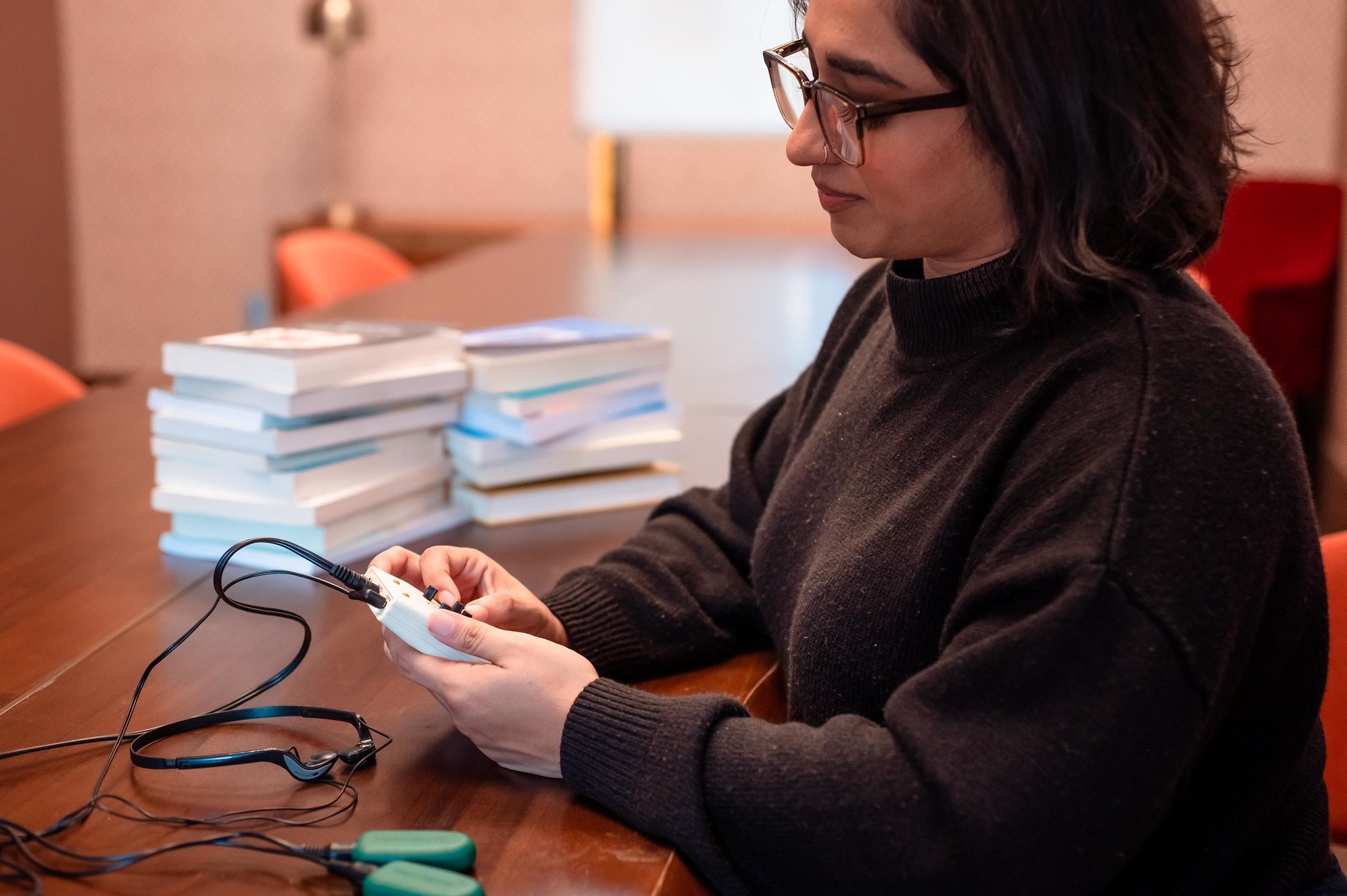
EMDR and Trauma Therapy
SOMETIMES TALK-THERAPY JUST DOESN'T CUT IT…
EMDR (Eye Movement Desensitization and Reprocessing) is a highly effective, evidence-based therapy for processing trauma, PTSD, and other distressing life events. By working with your brain’s natural ability to heal, EMDR helps reduce the emotional charge of painful memories and ease symptoms like anxiety, panic, and overwhelm. Our trauma-focused counseling uncovers root causes, builds resilience, and restores emotional balance. Whether you’re in Dallas, Houston, Austin, or anywhere in Texas, we can help you move from fear and hopelessness to calm, confidence, and empowerment.
-
Many people seek EMDR for one of two reasons:
They’ve heard about its effectiveness and want to begin therapy with EMDR from the start.
They’ve been in traditional talk therapy but feel “stuck” and want EMDR to help them move forward.
What is EMDR Therapy?
EMDR, or Eye Movement Desensitization and Reprocessing, is a holistic, evidence-based approach that works with your mind and body to heal from painful or traumatic experiences. During EMDR, we activate the thoughts, emotions, and body sensations connected to a distressing memory - helping your brain process it in a healthier way so it no longer holds the same power over you.When trauma occurs, the brain often can’t process information as it normally would. Instead, the memory, emotions, and sensations can become “stuck” due to the body’s natural fight, flight, or freeze response. In survival mode, the brain prioritizes protection over processing, leaving you with unresolved feelings such as fear, shame, or powerlessness. EMDR helps release those stuck memories, allowing you to feel lighter, calmer, and more in control of your life.
-
EMDR uses a method called bilateral stimulation - engaging both sides of the brain while you stay grounded in the present moment and process a past event. This helps the brain fully process the memory and get “unstuck.” One theory is that bilateral stimulation mimics rapid eye movement (REM) sleep, the brain’s natural process for consolidating and making sense of information.
In this state, key parts of the brain - the amygdala (emotions), hippocampus (memory), and prefrontal cortex (reasoning) - can communicate without the intense stress present during the original event. As processing unfolds, the emotional “charge” of the memory fades. EMDR doesn’t erase the memory; instead, it helps you reprocess it so it no longer impacts you in the same painful way.
While EMDR often uses eye movements, your therapist may also guide you through other forms of bilateral stimulation. This could include alternating gentle taps on your knees, holding small pulsers in each hand, or using light or sound that moves from one side to the other. All of these methods help the brain’s left and right hemispheres work together for healing.
-
In your first sessions, your therapist will learn about your history, current concerns, and what you hope to work on in therapy. As part of the EMDR process, you’ll also take part in resource development—a creative way to build an internal support system you can access during difficult moments.
This might involve visualizing a “safe place” where you feel calm and grounded, or identifying supportive figures—such as nurturing, wise, or protective presences—you can call upon while processing challenging memories. These tools help you stay centered and supported throughout the work.
The timeline for intake, resource development, and memory reprocessing varies for each person and depends on your unique needs. Your therapist will walk you through what to expect so you feel prepared every step of the way.
-
While EMDR is widely recognized for treating trauma, it’s also effective for many other challenges that contribute to depression, anxiety, shame, or a sense of powerlessness. EMDR can be used to address:
Single-incident traumas (car accidents, natural disasters, robberies, etc.)
Post-Traumatic Stress Disorder (PTSD)
Low self-esteem
Anxiety and panic
Depression
Relationship challenges
Addiction and recovery support
Domestic violence
Performance enhancement (sports, music, public speaking, etc.)
Feeling “stuck” in life
Shame and guilt
Childhood trauma
Emotional neglect or misattunement
Grief and loss
Sexual or physical assault
Social anxiety
Fear of rejection
Trust and intimacy issues
This list isn’t exhaustive—if you’re experiencing emotional pain or feeling held back by past experiences, EMDR may be a powerful tool to help you move forward.
-
If you’re already working with a counselor but feel like progress has stalled, adding EMDR therapy can be a helpful next step. Some clients choose to work with an EMDR therapist alongside their current therapist, while others take a short break from talk therapy to focus on EMDR.
With your permission, your EMDR therapist and regular therapist can coordinate care by sharing insights and progress through a signed Release of Information—ensuring your support is seamless and aligned with your goals.
-
If you’re wondering whether EMDR might be a good fit, give us a call at 214-308-1499 for a brief consultation. We’ll help you explore your options and answer any questions you may have.
For more in-depth information and the latest research on EMDR, visit the EMDR International Association or The EMDR Institute.
Our services
-

Individual Therapy Session
Personalized counseling to help you navigate life’s challenges, build self-awareness, and create lasting change in a supportive Texas-based setting.
-

EMDR Therapy Session
Evidence-based trauma treatment to reprocess painful memories and ease symptoms of anxiety, fear, or overwhelm, available to clients across Texas.
-

Trauma Yoga Session
Gentle, mindful movement designed to restore connection between mind, body, and spirit after trauma, offered online and in person.
-

Coaching
Goal-focused support to help you step into clarity, confidence, and aligned action in your personal or professional life.
Take Up Space Podcast – Real Conversations on Healing & Growth
Alongside my therapy practice, I host the Take Up Space Podcast, where I share honest conversations about mental health, trauma recovery, and self-discovery. These episodes offer practical tools, fresh perspectives, and stories that remind you you’re not alone. It’s a way to get to know me beyond the therapy room while gaining insights you can use in your own healing journey.
Start your healing journey.
Thank you for taking the first step on your journey to well-being. We're here to provide you with the support and guidance you need to overcome life's challenges and embrace personal growth. Please use the form here to reach out, ask questions, or schedule a consultation.
admin@evol.care
(214) 308-1499
Dallas, Texas

You’re not alone.